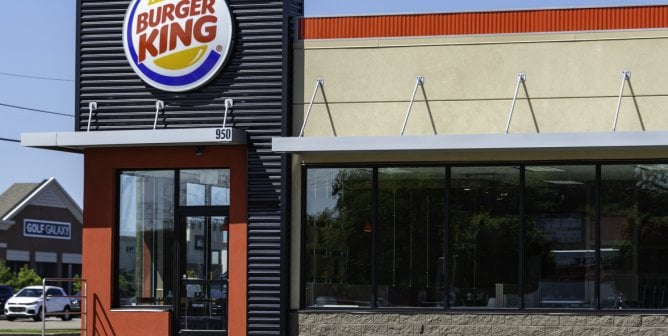It’s ‘Hell on Wheels’—PETA’s Turkey Truck Causes a Flap as It Tours the U.S.
To drive home the important message that turkeys are not ours to use for food, PETA’s guerilla-marketing campaign, the “Hell on Wheels” turkey truck, will be trotting cross-country and ruffling feathers near various grocery stores, busy downtown areas, and even the presidential “turkey pardon.”
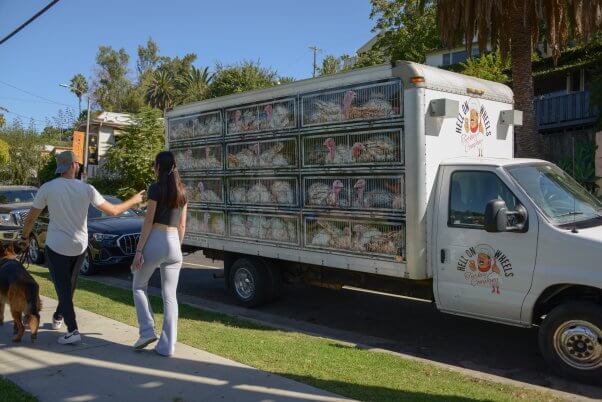
The large truck is plastered with images of turkeys bound for slaughter, and it blares the sounds of birds in distress and a subliminal message telling people to “go vegan.” This interactive, mobile installation is a protest on wheels, a call for people everywhere to give gentle turkeys a break.
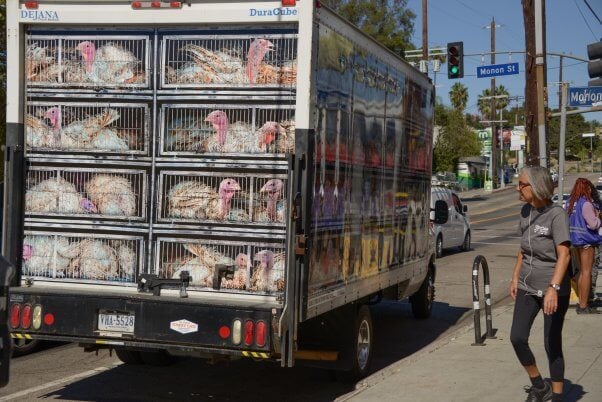
The truck is packed with free Thanksgiving recipe guides full of information about going vegan—the single best thing you can do for turkeys, other animals, and the environment.
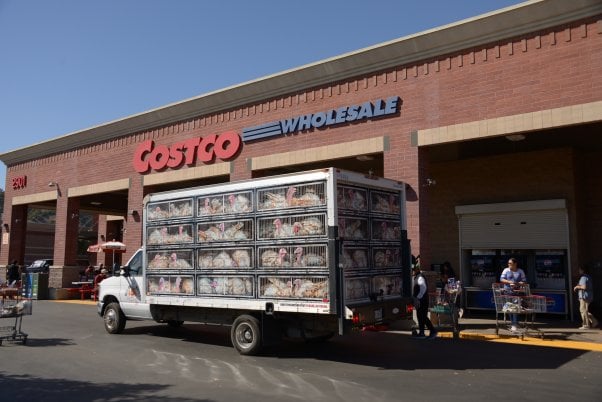
Which Cities Has the ‘Hell on Wheels’ Turkey Truck Visited?
So far, PETA’s turkey truck has visited over 20 cities:
- Los Angeles, California
- Santa Barbara, California
- San Jose, California
- New Haven, Connecticut
- Wilmington, Delaware
- Boise, Idaho
- Ottumwa, Iowa
- Baltimore, Maryland
- Boston, Massachusetts
- Mankato, Minnesota
- Omaha, Nebraska
- Reno, Nevada
- Manchester, New Hampshire
- Trenton, New Jersey
- Long Island, New York
- New York City, New York
- Dayton, Ohio
- Portland, Oregon
- Philadelphia, Pennsylvania
- State College, Pennsylvania
- Providence, Rhode Island
- Vermillion, South Dakota
- Logan, Utah
- Richmond, Virginia
- Washington D.C.
- Yakima, Washington
- Charleston, West Virginia
- Jackson, Wyoming
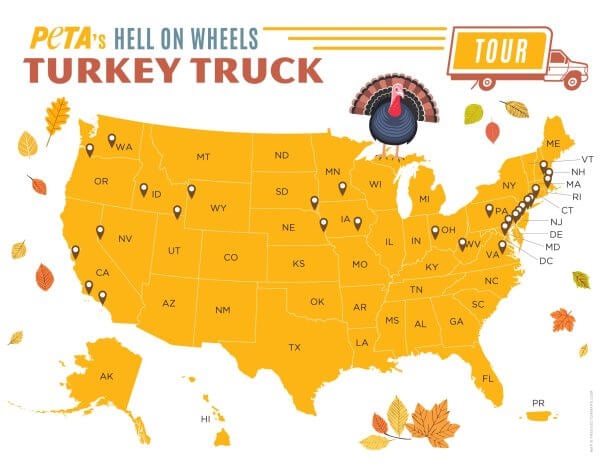
Where Is the ‘Hell on Wheels’ Turkey Truck Going Next?
Our truck will be taking a break until November. In the meantime, check out where our “Hell on Wheels” chicken and pig trucks will be appearing in 2025.
PETA’s Groundbreaking ‘Hell on Wheels’ Turkey Truck Serves Up Serious Food for Thought
The vexatious vehicle’s arrival comes as a bird flu outbreak continues to spread across the U.S.

A cluster of bird flu infections in humans has spread to eight people in Missouri in what may be the first examples of person-to-person transmission in the country, according to the Centers for Disease Control and Prevention. Bird flu has also infected more than 300 herds of cows in the dairy industry and resulted in the killing of tens of millions of turkeys, chickens, and other birds nationwide since the beginning of the year. Breeding and raising animals for food creates hotspots for potentially deadly zoonotic diseases.
When given a good life at a sanctuary, turkeys often follow humans around like puppies, looking for treats and affection.
They’ve also been known to fall asleep in people’s laps while being petted.
Turkeys are caring parents and spirited explorers who can live up to 10 years, but those raised for food are normally slaughtered when they’re between 12 and 26 weeks old. The young birds are hung by their feet from metal shackles and dragged through an electrified bath, and they’re often still conscious when their throats are slit and they’re dumped into scalding-hot defeathering tanks.
Humans kill millions of turkeys each year for Thanksgiving alone.
Here’s What You Can Do for Turkeys Used for Food
Every animal is someone.
The notion that humans are entitled to exploit turkeys and other animals is rooted in speciesism, the misguided belief that one species is more important than another. When we see all animals as deserving of respect, we understand that we must change our personal choices in order to stop contributing to their suffering.
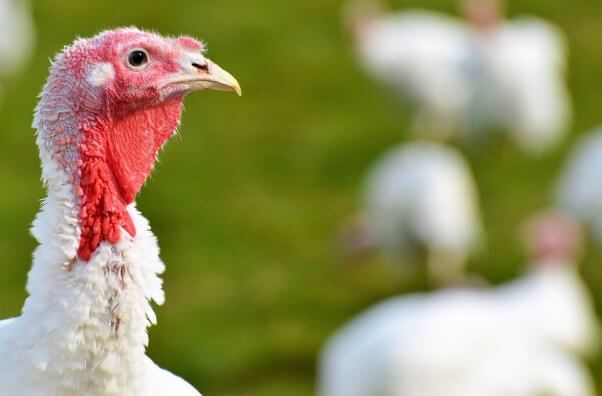
Going vegan not only spares turkeys and other animals immense suffering but is also great for the environment and your own health.
Thankfully, it’s easier than ever to go vegan, and PETA will even help you do it.
We’ve got great recipe ideas and tips about vegan options at restaurants that will help you bring compassion to your plate.
For more up-to-minute updates, follow PETA’s Bluesky account or find us on Threads or X.


